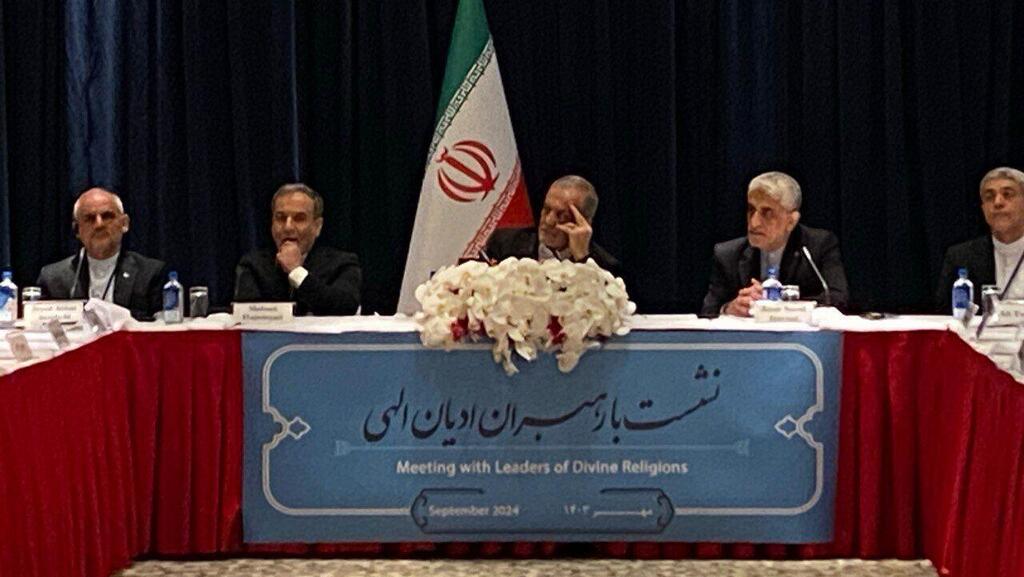Getting your Trinity Audio player ready...
Israeli professor Lior Sternfeld, an expert on Iranian Jewry, met with Iranian President Masoud Pezeshkian on the sidelines of the United Nations General Assembly in New York.
Despite laws prohibiting contact with officials from enemy states, Sternfeld informed Israeli authorities, who did not prevent the meeting.
“The president knew I was Israeli,” Sternfeld said, adding that he notified the U.N. delegation of his citizenship in advance, and his invitation was not rescinded. The meeting, conducted in Persian, was part of an “Interfaith Dialogue” event, which also included American Jewish rabbis invited by the Iranian president. "Are there new faces in Iran? The answer is yes,” Sternfeld said.
Sternfeld, a historian teaching in the United States, noted that he was the only Israeli present. “Nearly everyone had a chance to speak,” he said. “President Pezeshkian responded to all at once. This is not a continuation of [former President Ibrahim] Raisi’s foreign policy; Pezeshkian spoke about renewing dialogue with the West. If Israel had leadership open to building a better future for the region, I believe there is a partner to work with. Unfortunately, that’s not the case.”
The event focused on interfaith dialogue as a means of peacebuilding in the Middle East. Sternfeld emphasized the need for more than just dialogue, advocating for concrete steps to build working coalitions.
2 View gallery


Iranian President Masoud Pezeshkian at the UN General Assembly
(Photo: AP Photo/Pamela Smith)
He relayed Pezeshkian’s statement that if Israel and the Palestinians reached an agreement acceptable to most Palestinians, Iran would no longer carry the banner of resistance. Sternfeld urged Pezeshkian to reiterate this stance to a Western audience, suggesting it could positively impact perceptions of Iran.
Sternfeld also referenced a past offer by Iran’s former foreign minister to help resolve the issue of hostages as a humanitarian gesture. When he asked Pezeshkian if Iran could assist with the current hostage situation, the president did not respond directly, instead saying it was now up to the West to take the next step in dialogue with Iran.
“He is a moderate and seeks dialogue,” Sternfeld said, describing the meeting as a significant opportunity for the West to engage with Iran. Although initially hesitant to accept the invitation, he ultimately decided that the chance to speak directly with Iran’s president was too important to pass up.
Reflecting on the conversation, Sternfeld acknowledged that the war was a central theme, but Pezeshkian did not present a clear plan for ending the conflict. The professor highlighted the interconnectedness of the regional conflicts and emphasized the importance of initiating steps toward building trust.
“This is an opportunity that shouldn’t be missed,” Sternfeld said. “We can’t wait for Iran to meet a list of demands before starting talks. We must seize this moment to engage step by step.”
Campaign against Iran and Hezbollah in Times Square
(Photo: Israeli consulate in New York)






